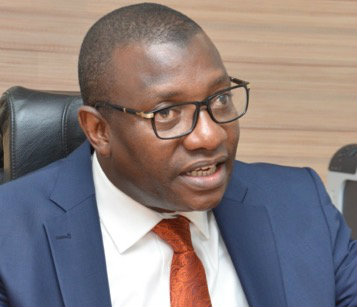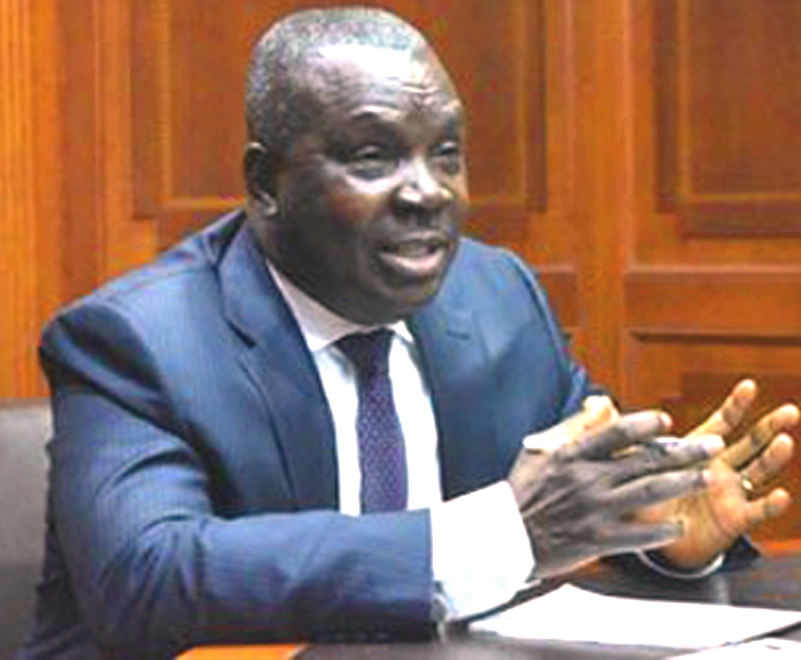Mistakes in divestment process come with consequences __NUPRC

![]()
- Industry demands regulator to be in charge
Sopuruchi Onwuka
The Nigerian Upstream Petroleum Regulatory Commission (NUPRC) has called for patience of players in the industry over the pending divestment of commercial interest from international oil companies to mainly indigenous independent petroleum companies; warning that any mishap in the process would be too costly for the government.
Commission Chief Executive (CCE), Engr Gbenga Komolafe, told The Oracle Today in an interview that the commission has already worked out process templates for driving transactions for farm out of interests among commercial players in the upstream petroleum industry.
The Oracle Today reports that several industry pundits have attributed the steep decline in cumulative national oil and gas production to a prevailing transaction quagmire that slow down approval processes for divestment deals that have scaled commercial and financial terms among the transaction parties.
Some of the divestment deals that have awaited ministerial approval for years and months include farm out of ExxonMobil’s interests in operated NNPC/MPN joint venture to Seplat Energy Plc; farm out of the commercial interests of Shell, TotalEnergies and Eni in the NNPC/Shell/TotalEnergies/Eni Joint Venture to Renaissance Corporation, and the farm out of Eni’s interest in the NNPC/Agip Joint Venture to Oando Plc.
Common factor in the crisis rocking the divestment programme in the industry is the insistence of the Nigerian National Petroleum Company (NNPC) Limited on exercising its pre-emptive rights to acquire the commercial interests of its joint venture partners, pointing at a joint operating agreement (JOA) governing the JVs.
The Chief Operating Officer (COO) of the Nigerian Upstream Investment Management Services (NUIMS), Bala Wunti, had at the past Nigerian Content Conference in Yenegoa, Bayelsa State, declared that the national oil company would normally insist on divestment agreements that also hold divesting entities accountable to decades of environmental footprints and decommissioning costs.

However, the Oil Producers Trade Section (OPTS) of the organized private sector which comprises all key oil and gas producers in country had explained that all arrangements including funding for decommissioning and environmental remediation are addressed in the farm out deals with acquiring entities.
Shell particularly declared that it has set out funds for eventual decommissioning of its JV facilities in the country even after its interests are divested from the assets. The company also stated that a parallel programme is running to meet its equity funding for environmental remediation in the Niger Delta where its has operated its JV for over 60 years.
Eminent industry professional leader and investor, Mr Austin Avuru, stated in a chat that delays in ministerial approval for divestment deals inform the acute decline in gross national petroleum output which, according to him, translated to acute foreign exchange catastrophe in the economy, low investment inflow, lull in oilfield activity and fall in overall industry patronage to the domestic products and services.

Mr Avuru who is currently the Chairman of AA Holdings challenged the NUPRC to come up with urgent recovery plan for the industry, facilitate speedy closure of divestment deals and assert its full regulatory authority in transforming the local industry environment for ease of doing business.
Engr Komolafe told our correspondent that there were no intentional approval delays in the prevailing string of divestment deals in the industry, explaining that the new Petroleum Industry Act or PIA has made new provisions that require a process to implement.
He said part of the process is for the players and parties involved in the divestment transaction to obtain certificate for completeness of submission and subsequent certificate of completion.
“As a matter of fact, for the entities requesting for consent, we have made it very clear to them that the regulator will issue certificate of completion after completeness of application. There is a provision and there is also a process,” he told The Oracle Today.
“For us as regulators, the issues of divestment are very critical to national interest; and we are poised as regulators to safeguard the national interest. That is what the job of the regulator is as it relates to the issue of divestment,” he added.
He made it clear that the divestment process must be properly handled to avert economic losses to the nation, stressing that the role of the regulator is to ensure that all national interests in the assets under farm out transactions are well protected.
“We have case studies of countries where divestments have not been properly done and the states had to bear the liability. For us as a country that is where the issue of national interest lies. It is an issue that requires appropriate and proper due diligence. And to that extent, the regulator has unveiled seven regulatory pillars that both the selling and acquiring entities need to take to ensure that the divestment is properly done.
“So, we are taking them through all these pillars; and these are being done in the overall national interest. It has heavy cost implication that if it is not properly done the nation might end up bearing the consequences. And in that respect, the regulator, as an umpire needs to ensure that the interest of the country is protected so that the nation does not suffer unwarranted liabilities.”
Excerpt of our chat with Engr Komolafe follows.
Good afternoon CCE, concerns are rising over the unfinished divestment transactions that pile up at your table waiting for recommendation for ministerial assent. How soon do we expect closures?
Which news medium do you represent, to start with?
We are The Oracle Newspapers Limited, Lagos; sir.
The Oracle! Ok. Alright. You need to rephrase the question. You don’t use ‘piling up.’ When you say ‘piling up,’ it is associated with delay. You get it?
Now, first of all, from the regulatory point of view, an issue is not piling or attributed to delay when you do not have completeness in submission. As a matter of fact, for the entities requesting for consent, we have made it very clear to them that the regulator will issue certificate of completion after completeness of application. There is a provision and there is also a process.
We are very efficient regulators, I need to say that. And that is the reason I was very sensitive to the word you used. But devoid of that, for us as regulators, the issues of divestment are very critical to national interest; and we are poised as regulators to safeguard the national interest. That is what the job of the regulator is as it relates to the issue of divestment.
So, it is an issue that has far reaching implication.
If you search it out, you would understand that some countries in the past have had issues with divestment; even in America and Australia. So we have case studies of countries where divestments have not been properly done and the states had to bear the liability.
So, for us as a country that is where the issue of national interest lies. So, it is an issue that requires appropriate and proper due diligence. And to that extent, the regulator has unveiled seven regulatory pillars that both the selling and acquiring entities need to take to ensure that the divestment is properly done.
So, we are taking them through all these pillars; and these are being done in the overall national interest. It has heavy cost implication that if it is not properly done the nation might end up bearing the consequences. And in that respect, the regulator, as an umpire needs to ensure that the interest of the country is protected so that the nation does not suffer unwarranted liabilities.
Thank you, sir. Looking at national interest from the prism of investment inflow, people are beginning to see delays in divestment closure as impediment to uptick of activities in the industry. How do we expedite the process by providing players in transactions a checklist to fulfil before approaching the regulator?
My media friend, from what I have said, you will realize that the regulator cannot actually do this job alone. We all have roles in protecting the national interest. We actually need your support too. You have a duty to ensure that the regulator is not just made a rubber stamp; because at the end of the day, as a Nigerian, you hold a stake in whatever decision the regulator takes in this respect.
So, you should be very much concerned about how the regulator takes the decisions, not that the regulator just becomes a rubber stamp in this respect.
I have given you an example. Go and study the countries that have not done divestment properly and the governments had to pay for it. It happened in America, and it also happened in Australia.
Now to address your questions, as I speak to you now, I am telling you that the regulator has rolled out the templates. So, it is for both the sellers and the acquiring entities to make sure that they respond to those templates in order to enable the regulator does what it needs to do.
And I made mention to you that the regulator will issue the certificate of completeness of submission as part of the fulfilment of the conditions of the templates. So, you should commend the regulator for coming up with proper frameworks that would enable it make the right decisions in national interest.




